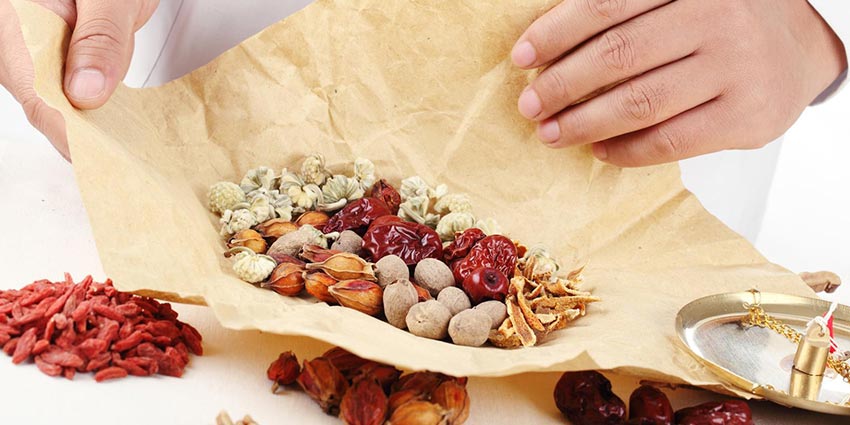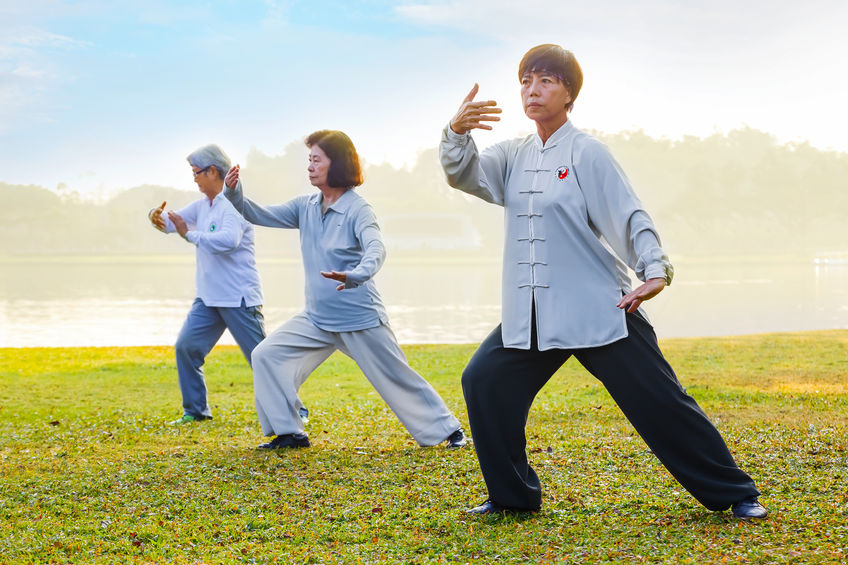
Understanding Traditional Chinese Medicine (TCM)
Defining TCM
Traditional Chinese Medicine (TCM) is a comprehensive system of healing that has been practiced for thousands of years, rooted in the fundamental principles of balance and harmony within the body. At the core of TCM philosophy are concepts such as Qi, the vital energy that flows through the body, Yin-Yang balance, representing opposing but complementary forces, and the Five Elements, which correspond to different organs and aspects of life. Unlike Western medicine, which often focuses on treating symptoms, TCM aims to address the underlying imbalances that cause illness.
_700x467.jpg)
History of TCM
The history of Traditional Chinese Medicine is rich and complex, stretching back over 2,000 years to ancient China. Its origins can be traced to the contributions of legendary figures such as the Yellow Emperor, who compiled the foundational text of TCM, the Huangdi Neijing (Yellow Emperor's Inner Canon). Over the centuries, TCM has evolved and adapted, incorporating new discoveries and cultural influences while remaining true to its core principles. Today, TCM continues to thrive as a holistic approach to health and wellness, both in China and around the world.

The Key Components of TCM
Acupuncture
One of the most well-known practices of TCM is acupuncture, which involves the insertion of thin needles into specific points on the body to stimulate energy flow and promote healing. Acupuncture has been shown to be effective in treating a wide range of conditions, including chronic pain, digestive disorders, and stress-related ailments. By targeting acupuncture points associated with different organs and systems, practitioners can help restore balance and alleviate symptoms.

Herbal Medicine
Herbal medicine is another cornerstone of TCM, with a vast array of herbs and botanicals used to address various health concerns. These herbs are classified according to TCM principles, such as their taste, temperature, and actions on the body. Popular herbs like ginseng, ginger, and astragalus have been used for centuries for their medicinal properties, which range from boosting immunity to reducing inflammation. Herbal formulas are often customized to suit individual needs and may be prescribed as teas, powders, or pills.

Tai Chi and Qi Gong
Tai Chi and Qi Gong are ancient martial arts practices that also serve as forms of moving meditation in TCM. These gentle exercises focus on slow, deliberate movements coordinated with deep breathing and mental concentration. Practicing Tai Chi and Qi Gong has been linked to numerous health benefits, including improved balance, flexibility, and mental well-being. With regular practice, individuals can cultivate a sense of inner peace and harmony while enhancing their overall vitality.

Dietary Therapy in TCM
Principles of TCM Diet
In TCM, diet plays a crucial role in maintaining health and preventing illness. The principles of a TCM diet emphasize the balance of Yin and Yang energies, as well as the consumption of a variety of foods to support overall well-being. Foods are classified according to their energetic properties, such as their temperature (cooling or warming) and their effects on the body (moistening or drying). By adhering to these principles, individuals can optimize their digestion, energy levels, and resilience against disease.
Healing Foods in TCM
Certain foods are considered particularly beneficial for promoting health and healing in TCM. These include nutrient-dense foods like leafy greens, root vegetables, and whole grains, as well as specific herbs and spices with medicinal properties. For example, ginger and garlic are prized for their ability to strengthen the immune system and aid digestion, while foods like goji berries and shiitake mushrooms are valued for their antioxidant and anti-inflammatory properties. By incorporating these healing foods into their diet, individuals can support their body's natural ability to heal and thrive.
Lifestyle Practices for Holistic Health
Feng Shui
Feng Shui is an ancient Chinese practice that involves arranging the environment to promote harmony and balance. In TCM, Feng Shui principles are applied to the home or workplace to enhance the flow of Qi energy and create a supportive environment for health and well-being. By optimizing the layout, color scheme, and furnishings of a space, individuals can cultivate a sense of calm and vitality while reducing stress and promoting relaxation.
Meditation and Mindfulness
Meditation and mindfulness are integral components of TCM that help individuals cultivate inner peace and mental clarity. Through practices such as breath awareness, visualization, and guided meditation, individuals can quiet the mind, reduce stress, and enhance their overall sense of well-being. By incorporating these practices into their daily routine, individuals can develop greater resilience to the challenges of modern life and cultivate a deeper connection to themselves and the world around them.

Putting It All Together: A Step-by-Step Guide
Assessing Individual Needs
The first step in mastering Traditional Chinese Medicine is to assess your individual needs and health goals. This involves understanding your unique constitution according to TCM principles, as well as identifying any specific health concerns or imbalances you may be experiencing. By taking stock of your physical, emotional, and spiritual well-being, you can gain insight into areas that may benefit from TCM interventions and tailor your approach accordingly.
Creating a Personalized TCM Plan
Once you have assessed your needs, the next step is to create a personalized TCM plan that addresses your specific goals and concerns. This may involve a combination of acupuncture treatments, herbal remedies, dietary adjustments, and lifestyle practices tailored to your individual constitution and preferences. By working with a qualified TCM practitioner, you can develop a comprehensive plan that supports your journey to optimal health and well-being.
Conclusion
In conclusion, mastering Traditional Chinese Medicine offers a holistic approach to health and wellness that emphasizes balance, harmony, and individualized care. By understanding the principles of TCM and incorporating its key components into your daily life, you can optimize your physical, mental, and emotional well-being. Whether you choose to explore acupuncture, herbal medicine, Tai Chi, dietary therapy, or lifestyle practices like Feng Shui and meditation, embracing TCM can empower you to take control of your health and live your best life. So why wait? Take the first step on your TCM journey today and discover the transformative power of this ancient healing tradition.
FAQs
What is Traditional Chinese Medicine (TCM)?
Traditional Chinese Medicine (TCM) is a comprehensive system of healing that has been practiced for thousands of years in China and other parts of the world. It encompasses a range of practices, including acupuncture, herbal medicine, Tai Chi, Qi Gong, dietary therapy, and lifestyle practices, all aimed at promoting balance and harmony within the body.
How does acupuncture work?
Acupuncture involves the insertion of thin needles into specific points on the body to stimulate energy flow and promote healing. These acupuncture points are believed to correspond to channels or meridians through which Qi energy flows. By targeting these points, acupuncturists can help restore balance and alleviate symptoms associated with a wide range of health conditions.
Are there any side effects to acupuncture?
Acupuncture is generally considered safe when performed by a qualified practitioner. However, some people may experience mild side effects such as bruising, soreness, or bleeding at the site of needle insertion. Serious complications are rare but may include infection or injury to internal organs if needles are not properly sterilized or inserted. It's important to seek treatment from a licensed acupuncturist to minimize the risk of adverse reactions.
What conditions can herbal medicine treat?
Herbal medicine is used to treat a wide range of health conditions in Traditional Chinese Medicine, including chronic pain, digestive disorders, respiratory ailments, hormonal imbalances, and mental health issues. Herbal remedies are often prescribed as part of a comprehensive treatment plan tailored to individual needs and may be used alone or in combination with other TCM therapies.
How can I incorporate TCM principles into my daily life?
There are many ways to incorporate TCM principles into your daily life, such as practicing Tai Chi or Qi Gong for stress relief and relaxation, incorporating healing foods and herbs into your diet, applying Feng Shui principles to create a harmonious living environment, and cultivating mindfulness through meditation or breathwork. By making small changes to your lifestyle and mindset, you can align yourself with the principles of TCM and support your overall health and well-being.
Is TCM covered by insurance?
In some cases, acupuncture treatments may be covered by health insurance plans, depending on your provider and the specific terms of your policy. However, coverage for other TCM modalities such as herbal medicine or dietary therapy may vary. It's best to check with your insurance provider to determine what services are covered and whether you may be eligible for reimbursement for TCM treatments.
How long does it take to see results from TCM treatments?
The timeline for seeing results from TCM treatments can vary depending on the individual and the nature of the condition being treated. Some people may experience immediate relief from symptoms after a single acupuncture session, while others may require multiple treatments over several weeks or months to achieve optimal results. It's important to be patient and consistent with TCM therapies, as the goal is to address underlying imbalances and promote long-term health and wellness.
Can anyone practice TCM?
While anyone can benefit from incorporating TCM principles into their daily life, practicing TCM therapies such as acupuncture or herbal medicine requires specialized training and licensure. To become a licensed acupuncturist or herbalist, individuals must complete rigorous educational programs and pass national board exams to demonstrate competency in TCM theory and practice. It's important to seek treatment from qualified practitioners who have received proper training and accreditation in their field.


0 Comments